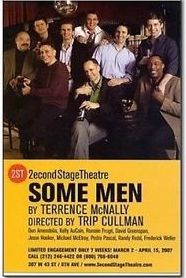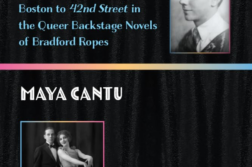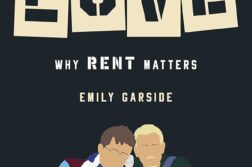 Some Men
Some Men
by Terrence McNally
Second Stage Theatre, New York
“Only connect,” one man in a gay chat room volunteers to another in McNally’s new play, Some Men (which completed its limited run in New York in late April and is certain to become a staple of the regional gay theater circuit). Unfortunately, his correspondent’s recognition of gay novelist E. M. Forster as the source of the quote fails to guarantee a bond between the two men. The play, which is a series of vignettes of American gay life from 1922 to the present framed by the events at a gay wedding, readily admits to the difficulties of finding a satisfying relationship: sexual chemistry may not be present when other elements of attraction are; personal insecurities such as a fear of so cial disapproval or a reluctance to limit oneself to just one sexual partner become barriers to engagement; gay self-loathing proves a bell jar that suffocates the most promising relationship. Thus, in one of the play’s most poignant scenes, a 1930’s Harlem club performer narrates his relationship with a self-loathing composer that resulted in the song “Ten Cents a Dance.” And in one of the play’s most hilarious scenes, a pair of Queer Studies majors from Vassar is offended to learn that a long-married couple did not feel oppressed in pre-Stonewall America (“It was different then. We didn’t make so much of a fuss. … We just wanted to be happy”).
cial disapproval or a reluctance to limit oneself to just one sexual partner become barriers to engagement; gay self-loathing proves a bell jar that suffocates the most promising relationship. Thus, in one of the play’s most poignant scenes, a 1930’s Harlem club performer narrates his relationship with a self-loathing composer that resulted in the song “Ten Cents a Dance.” And in one of the play’s most hilarious scenes, a pair of Queer Studies majors from Vassar is offended to learn that a long-married couple did not feel oppressed in pre-Stonewall America (“It was different then. We didn’t make so much of a fuss. … We just wanted to be happy”).






